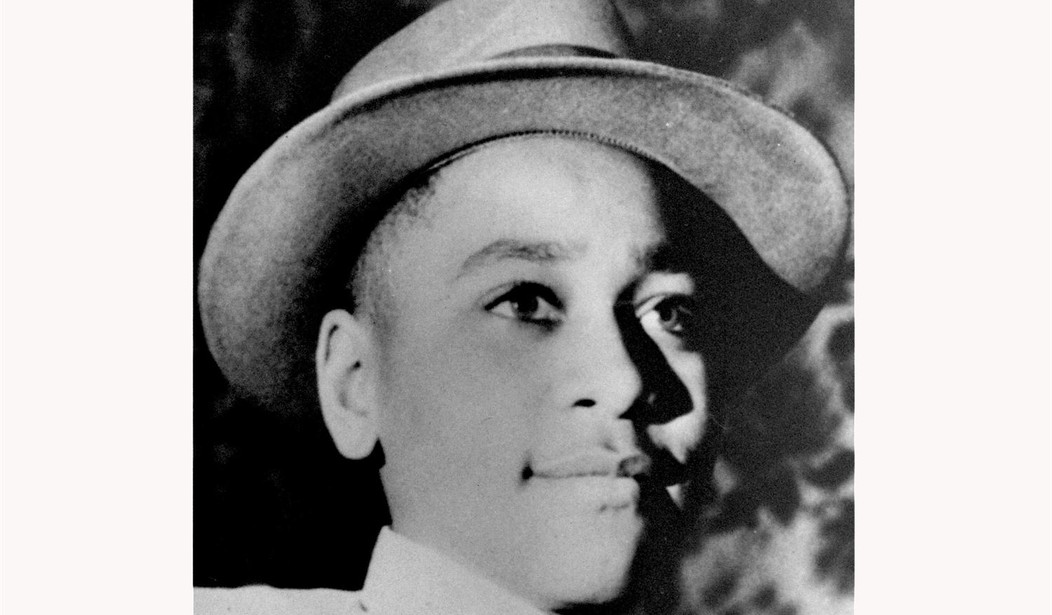Joe Biden announced on Saturday that he was creating a national monument to recognize Emmett Till and his mother.
In August 1955, 14-year-old Emmett Till was visiting relatives in the small town of Money, Miss., when Carolyn Bryant Donham, a white woman working in a grocery store, accused Till of giving her a wolf whistle. Many white men in Mississippi at the time considered such attention from a young black man as tantamount to rape.
The evidence suggests that Donham told her husband Roy Bryant and his half-brother J.W. Milam about the whistle and also claimed that Till made sexual advances toward her. Such an accusation was guaranteed to bring about the events that subsequently unfolded. The two men kidnapped Till, tortured him, lynched him, and then shot him.
The subsequent trial found both men not guilty. Bryant later admitted to the crime in an interview with Look Magazine, and Donham claimed she didn’t know what would happen to Till. An unserved warrant for her arrest was found years later.
There is no doubt that what happened to Emmett Till was an abomination — a stain on the conscience and soul of America. But what happened to Till — as brutally and nauseatingly racist as it was — could not be considered “unusual.” That might make a statement about what kind of nation America was in the post-war South, but it certainly didn’t make Till a “hero” any more than the thousands of other black men who were lynched were “heroes.”
There will be several sites set aside to create the Emmett Till and Mamie Till-Mobley National Monument. His mother is being honored for her tireless civil rights advocacy.
The monument to Till and his mother will include three sites in the two states.
The Illinois site is Roberts Temple Church of God in Christ in Bronzeville, a historically Black neighborhood on Chicago’s South Side. Thousands of people gathered at the church to mourn Emmett Till in September 1955.
The Mississippi locations are Graball Landing, believed to be where Till’s mutilated body was pulled from the Tallahatchie River, and the Tallahatchie County Second District Courthouse in Sumner, Mississippi, where Till’s killers were tried and acquitted by an all-white jury.
The National Parks Conservation Association defines national monuments differently than national parks and other historic sites.
National monuments are nationally significant lands and waters set aside for permanent protection. These public lands are similar to national parks in many ways, with some key differences.
Are national monuments statues or buildings?
No. Although many national monuments contain memorials or historic structures, these sites protect areas of land and/or water, similar to other kinds of national park sites, and are not individual statues.
There is no doubt that Emmett Till is a powerful symbol of the civil rights movement in America. His death — and the advocacy of his mother — shocked decent people across the country and galvanized a generation of civil rights leaders.
So why not build a museum? Or get Congress to create a national park in Mississippi? It would seem to be that either or both of those options would be a more fitting remembrance for the young man and his mother.
But only the president can create a national monument.
Congress can create any kind of national park site by passing legislation designating the specified park.
U.S. presidents can only create national monuments by using the authority granted to them by Congress in the Antiquities Act of 1906. Thus national monuments are usually, but not always, created by the executive branch rather than the legislative branch of government.
Leave it to the panderer-in-chief to turn a solemn remembrance of a tragedy into a crass political act. Biden is more concerned about votes than in recognizing America’s troubled civil rights past.










Join the conversation as a VIP Member